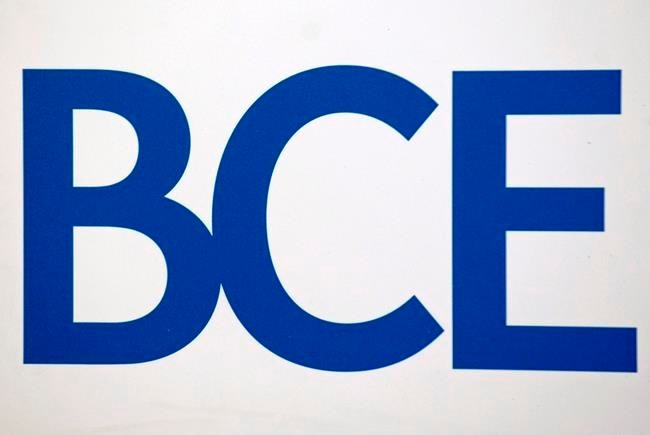BCE Inc. is launching what executives call the biggest investment program in the company's history as it speeds up plans for its 5G and fibre networks.
The Bell parent company said Thursday it will spend at least $1 billion in addition to its normal capital spending over the next two years in a move to double the share of the Canadian population covered by its 5G wireless network.
The extra spending will be funded in part, by the sale of Bell data centres to Equinix. The spending will help BCE finish fibre networks in Montreal, Toronto and Winnipeg, executives said, adding that fibre will extend in Hamilton and Toronto's suburbs. More services, such as wireless home internet, will also be launched in Atlantic Canada, Quebec, Manitoba and rural Ontario as part of the expansion, executives said on a conference call with financial analysts.
"This is the right strategic move at the right time for our customers and our company," said chief executive Mirko Bibic in a conference call with financial analysts.
"This will put us in an advantageous competitive position, allowing us to keep growing broadband market share and internet revenue and to begin monetizing 5G services."
Last year, BCE spent $4.2 billion in capital expenses. The new plan calls for about $700 million in extra spending this year, on top of the company's typical yearly capital expenditures of about $4 billion. Next year, BCE said it will spend $300 million to $500 million more than the $4 billion average, for a total of $1 billion to $1.2 billion in extra spending over the next two years.
BCE also raised its dividend Thursday as it reported its fourth-quarter profit rose compared with a year ago. The company says it will pay a quarterly dividend of 87.5 cents per share, up from 83.25 cents per share.
"This represents an emphatic commitment to our dividend growth approach," Bibic said.
The increased payment to shareholders came as BCE reported a profit of $889 million attributable to common shareholders or 98 cents per share. That compared with a profit attributable to common shareholders of $672 million or 74 cents per share in the fourth quarter of 2019.
On an adjusted basis, BCE says it earned 81 cents per share for the quarter, down from an adjusted profit of 86 cents per share a year earlier. Analysts on average had expected an adjusted profit of 76 cents per share, according to financial data firm Refinitiv.
BCE's overall operating revenue totalled $6.10 billion, down from $6.28 billion. The company said it expects revenue to grow two to five per cent in 2021.
Chief financial officer Glen LeBlanc said residential wireline sales were a clear highlight of the quarter, helped by an increase in home internet customers. Residential wireline sales increased 1.5 per cent, marking the best quarterly performance in the past two years.
BCE's financial report came on the heels of job cuts at Bell Media. About 210 Bell Media or CTV employees were laid off in Toronto this week, a union said, after Bell said it would also make changes to its radio programming.
Operating revenue in the media business dropped 10 per cent in the fourth quarter amid fewer sports and live events during the pandemic, despite rebounding advertiser interest. Streaming platform Crave gained eight per cent more subscribers in 2020 compared with 2019, but LeBlanc said that the media business' growth going forward will be moderated by higher costs for sports rights, the resumption of a full broadcast schedule and premium content for Crave.
Bibic told analysts on Thursday that the plan to make additional investments into its network could create about 5,300 direct and indirect jobs. The investment will qualify for a federal tax-savings program, executives said.
Still, the company told analysts that 2021 is a "transition year" towards a return to the company's pre-pandemic financial levels. It noted that with travel restrictions during the pandemic, it will take a while to return to pre-pandemic levels of roaming fees which are "extremely high margin." The company also said it has been cutting back on promotional offers on mobile phones, with handset subsidies down 14 per cent from last year.
"We're managing costs very tightly," Bibic said.
This report by The Canadian Press was first published Feb. 4, 2021.
Companies in this story: (TSX:BCE)
Anita Balakrishnan, The Canadian Press



